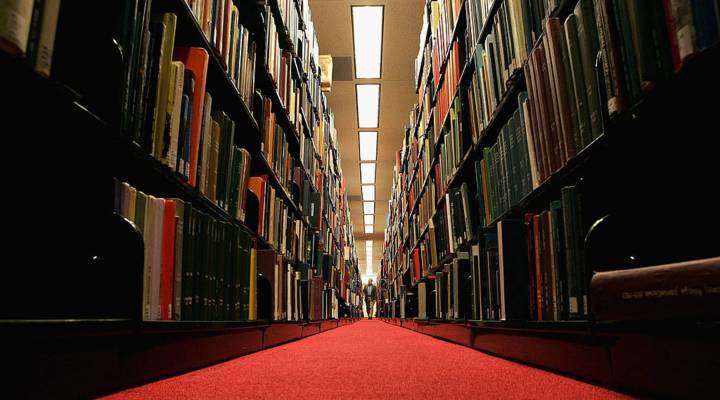
International students and faculty make ‘the world a safer place’
International students and faculty make ‘the world a safer place’

Imagine you run a big company that employs tens of thousands of employees and tens of thousands of customers, except those customers are students, the employees are faculty and staff, and your company is a major American research university.
And then imagine that the White House issues an executive order limiting some portion of your employees and customers from coming and going into and out of this country.
That’s where University of Michigan President Mark Schlissel found himself last Friday.
Kai Ryssdal: This executive order came down on Friday afternoon. What did you do? What was your first reaction?
Mark Schlissel: Well, first reaction always is to understand the implications of major changes in government policy for our community. And this is something we’ve been tracking and paid attention to for months, because although the timing was a surprise and the nature of the executive order was a surprise, the fact that the new administration plan to work on immigration was not a surprise.
Ryssdal: How are you assessing the impact on the economics of academia in this country, the idea of overseas students coming at all, the idea of academic cooperation on an international basis, those kinds of things?
Schlissel: You know, there are challenges on all of those levels. I think the reason why it’s important to me to speak out and take a leadership role on this is international members of our community are significantly responsible for the excellence, not just at the University of Michigan, but of higher education throughout the United States. It’s really the envy of the world, and we’re a magnet for talented, hardworking people that want to come here, contribute and at the same time improve their lives through education. We’re educating all our students to operate in a global marketplace. There’s your plug. And in order to do that, they need to be exposed to people from different nations, different cultures, as part of their education. So you know, we are all concerned about our nation’s security, that goes without saying. We’re also concerned about our economic security and our economic future. And we don’t want to fritter away our nation’s advantages.
Ryssdal: You said this past weekend in a statement after the order was issued that the University of Michigan will not share, does not share, sensitive information about its students, like immigration status. Are you worried about the government coming to you and saying, “Listen, give it up”?
Schlissel: The policies I spoke about have actually been in place for a very long time, so this isn’t in response to an executive order. You know, I wanted to remind our community that we take our students privacy very seriously and that privacy is protected by federal law. So you know, we certainly recognize, respect and obey the law, but we do so in a way that protects our students privacy and their own individual rights.
Ryssdal: What happens to the University of Michigan and higher education in this country, if the order, as it’s written today, stands for the next four years or eight?
Mark Schlissel: Well, I think it’s a very complicated question, because the order as it’s written today is still being interpreted. And it has parts in it that play out over the course of many months. And I’m not a policy expert. I think the important thing is to change the perception that the United States is not a welcoming country. Of course it is. We’re a country of immigrants. You don’t have to look very hard to find out where everybody is from and how many generations ago they too were in the situation of being an immigrant. It’s that perception that we’re a beacon for talented, ambitious people around the world that we can’t afford to lose. When I talked to my university colleagues around the world, leaders of other universities, I comment and they agree that one of the underappreciated aspects of having international exchanges where students and faculty come here and that our students and faculty go elsewhere around the world, is it makes the world a safer place.
There’s a lot happening in the world. Through it all, Marketplace is here for you.
You rely on Marketplace to break down the world’s events and tell you how it affects you in a fact-based, approachable way. We rely on your financial support to keep making that possible.
Your donation today powers the independent journalism that you rely on. For just $5/month, you can help sustain Marketplace so we can keep reporting on the things that matter to you.












